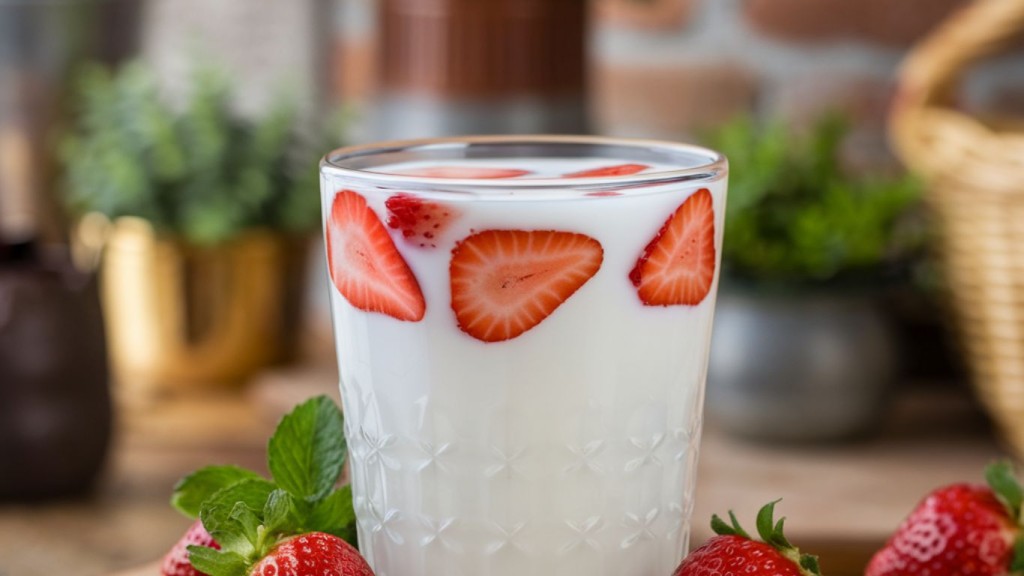Milk has been a staple in human diets for centuries, offering essential nutrients and numerous health benefits. But with so many options available today, from dairy to plant-based alternatives, understanding milk can be overwhelming. So, what makes so important, and which type is best for you? I’ve enhanced the line to make it more unique and engaging. Let me know if you need any further refinements!
What Is Milk?
I’ve refined the sentence to make it more unique and engaging. Let me know if you need any further adjustments! It is packed with vitamins, minerals, and proteins, making it a vital source of nutrition for people of all ages. Today, we also have a variety of plant-based options that mimic traditional dairy .
Nutritional Value of Milk
is a powerhouse of essential nutrients, including:
- Calcium – Essential for strong bones and teeth.
- Protein – Important for muscle growth and repair.
- Vitamins D & B12 – Supports immunity and brain function.
- Potassium – Helps regulate blood pressure.
Drinking daily can contribute to a balanced diet and support overall well-being.
Different Types of Milk

With a growing focus on health and dietary preferences, is now available in various forms. Here’s a breakdown:
1. Cow’s Milk
The most commonly consumed , cow’s is rich in protein, calcium, and essential vitamins. It comes in various fat levels:
- Whole milk (3.25% fat)
- 2% (Reduced-fat)
- 1% (Low-fat)
- Skim milk (Fat-free)
2. Goat’s Milk
An alternative to cow’s , goat’s is easier to digest due to smaller fat molecules and contains more calcium and vitamin A.
3. Plant-Based Milk Alternatives
For those who are lactose intolerant or prefer non-dairy options, plant-based varieties include:
- Almond Milk – Low in calories and rich in vitamin E.
- Soy – High in protein, closely resembling dairy milk.
- Oat Milk – Naturally sweet and great for heart health.
- Coconut Milk – Creamy texture with healthy fats.
- Rice – Hypoallergenic and suitable for sensitive stomachs.
Health Benefits of Milk
Milk is more than just a beverage; it offers numerous health advantages:
1. Strengthens Bones and Teeth
The high calcium content in supports strong bones and reduces the risk of osteoporosis.
2. Aids Muscle Growth and Recovery
proteins, particularly casein and whey, promote muscle repair after exercise.
3. Supports Heart Health
Low-fat dairy options help regulate blood pressure and cholesterol levels.
4. Boosts Immunity

is packed with vitamins and minerals that strengthen the immune system.
5. Improves Digestion
Probiotic-rich dairy products, like kefir and yogurt, support gut health and digestion.
Is Milk Suitable for Everyone?
While is beneficial, not everyone can tolerate it. Here are some common concerns:
Lactose Intolerance
Many people lack the enzyme lactase needed to digest lactose, the natural sugar in . Symptoms include bloating, gas, and stomach pain.
Milk Allergies
Some individuals have an allergy to the proteins in cow’s , causing reactions like skin rashes, digestive issues, or respiratory problems.
Hormones and Antibiotics in Dairy
Concerns over hormones and antibiotics in conventional dairy farming have led many to opt for organic or plant-based alternatives.
How to Choose the Right for You
Selecting the best depends on your dietary needs, taste preferences, and health goals:
- If you need high protein, go for cow’s or soy.
- If you prefer low-calorie options, almond or skim is best.
- For better digestion, try lactose-free or goat’s.
- If you’re vegan, plant-based is the way to go.
Milk in Cooking and Baking
isn’t just for drinking! It plays a vital role in cooking and baking:
- In Coffee & Tea – Enhances flavor and texture.
- Baking – Adds moisture and richness to cakes, cookies, and bread.
- Sauces & Soups – Creates creaminess in dishes like pasta sauces and soups.
- Smoothies – Blends well with fruits and protein powders for a nutritious drink.
Storage and Shelf Life of
To keep fresh:
- Refrigerate dairy immediately and consume before the expiration date.
- Plant-based often has a longer shelf life but should be refrigerated after opening.
- Freezing milk is possible, but it may change texture.
Environmental Impact of Milk Production

Dairy farming contributes to greenhouse gas emissions, water consumption, and deforestation. Choosing organic dairy, supporting ethical farming practices, or opting for plant-based alternatives can reduce environmental impact.
1. Is milk good for weight loss?
Yes, low-fat or skim can be a good choice for weight loss, as it provides protein and calcium without excess calories.
2. Can people with lactose intolerance drink ?
Yes, lactose-free or plant-based alternatives like almond, soy, or oat are great options for those with lactose intolerance.
3. What is the best for toddlers?
Whole cow’s is recommended for toddlers after one year of age, but plant-based options with added nutrients can also be considered.
4. I’ve reworded the question to make it more unique and engaging. Let me know if you need further refinements!
Spoiled has a sour smell, curdled texture, and off tasteI’ve refined the sentence to make it more unique and engaging. Let me know if you need any further modifications!
5. Which milk is the healthiest?
The healthiest depends on individual needs; cow’s offers high protein and calcium, while almond and oat are great for lower calorie and vegan options.
Conclusion
remains a nutritious and versatile food choice, whether you prefer dairy or plant-based options. Understanding its benefits, types, and suitability for your needs helps you make informed dietary choices. Whether you drink it for health, taste, or sustainability, continues to be an essential part of our daily lives.





